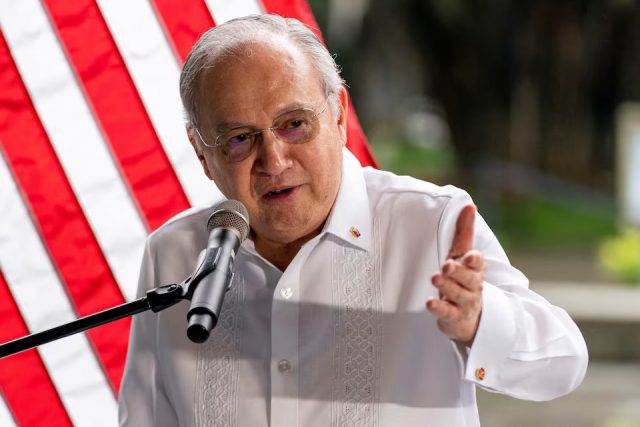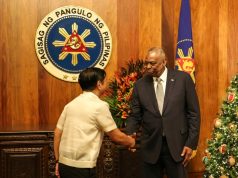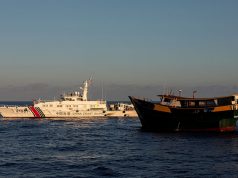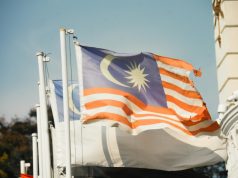
WASHINGTON — A summit of at least 20 nations is planned on the sidelines of the U.N. General Assembly this month to seek ways “to talk some sense” into China over its confrontation with the Philippines in the South China Sea, Manila’s Washington envoy said on Tuesday.
“The more countries band together and give a message to China that what they’re doing is definitely not on the right side of history, then we have a better than even chance that they will not make that wrong move that we’re all fearing,” the envoy, Jose Manuel Romualdez said.
Romualdez did not elaborate on plans for the summit, which he said would take place on the sidelines of the annual General Assembly in New York in the week of Sept. 22.
The United States is Manila’s key ally. Its State Department and the White House did not immediately respond when asked about the plan.
The Philippines and China have exchanged accusations of intentionally ramming coast guard vessels in the disputed South China Sea in recent months, including a violent clash in June in which a Filipino sailor lost a finger.
Chinese state media on Monday called on the Philippines to “seriously consider the future” of a relationship “at a crossroads”.
Referring to Chinese pressure, Romualdez told Washington’s New America think tank the Philippines “has never faced this type of challenge since World War Two.”
“As of today, they have about 238 (Chinese) ships or militia vessels swarming in the … area, and they continue to do this day in and day out,” he said.
The aim of the summit would be for participants to join with the Philippines in “finding ways to be able to talk some sense into the PRC,” he said, using the initials of the People’s Republic of China.
Last week, Australia and Japan criticized China for what they called “dangerous and coercive” acts against the Philippines in the South China Sea, and India and Singapore called for a peaceful resolution of all disputes there without use of force.
Romualdez said that while trying to use diplomacy to have a “civil conversation with our neighbors in the north, we also have to continue to try and find ways and means to be able to strengthen our alliances.”
The aim was “to give a signal to China, that we’re not just one but we’re many that are not happy with what they’re doing today in the Indo-Pacific region.”
—Reporting by David Brunnstrom; Editing by Stephen Coates









